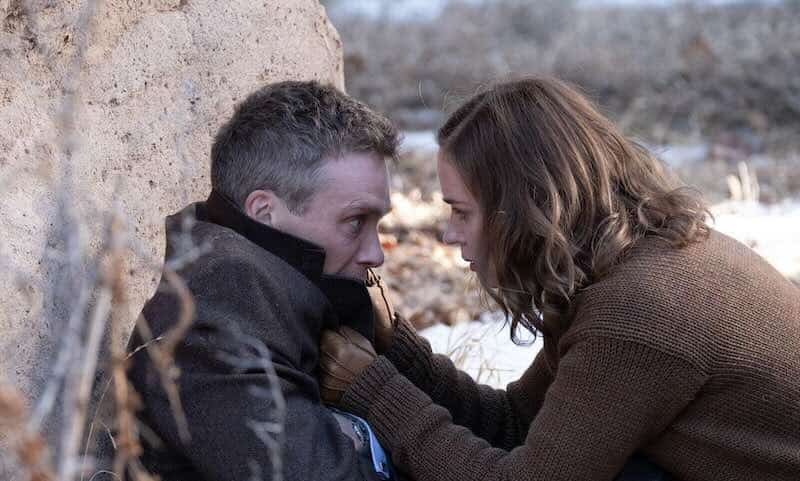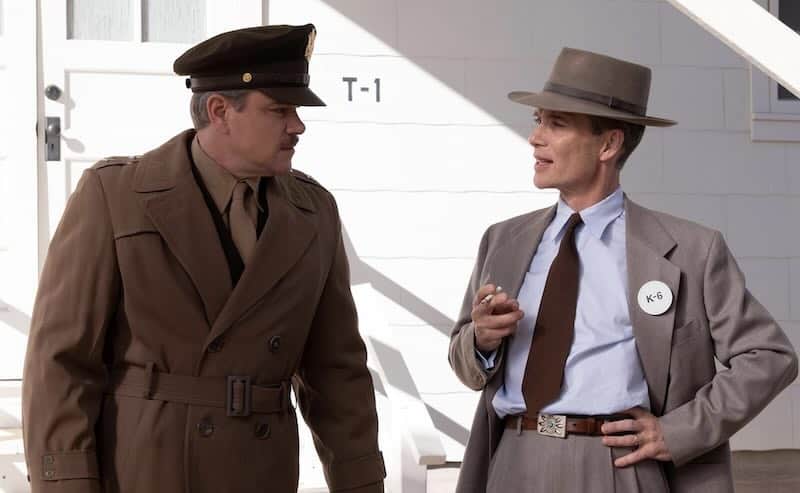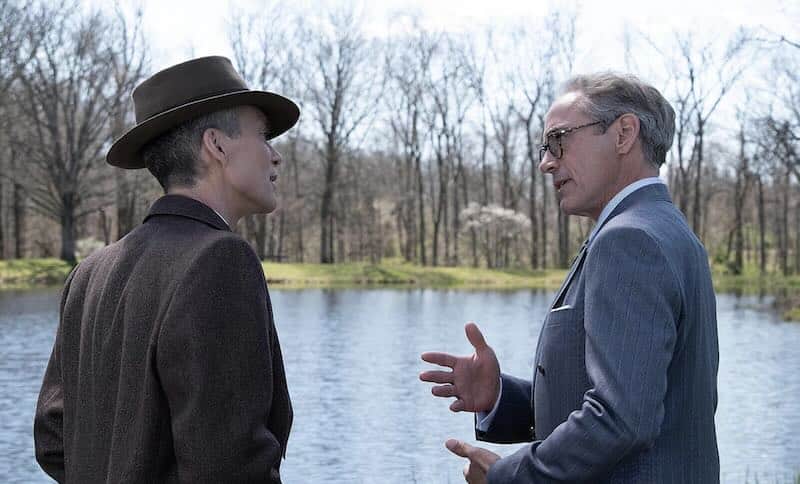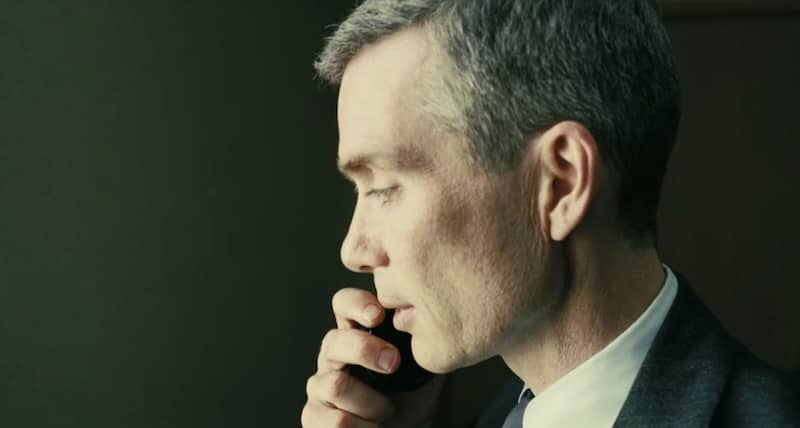Oppenheimer brought up of a lot of personal history for me. I was alive during World War II. I was alive when the United States dropped two atomic bombs on Japan. I remember the end of the war as a time of jubilation in my family home. There was a lot in the film that I knew already. It wasn’t a history lesson for me as it probably is for most people who watch it. It was a review of my life living with the bomb.
But first, a couple of words about Oppenheimer & women
Oppenheimer isn’t my usual women-centric blog focus. So I have to say a couple of things about the concentrated male gaze used in the story, a few words about the women in the telling, so I feel justified in including these comments here.
J. Robert Oppenheimer (Cillian Murphy) had an affair with Jean Tatlock (Florence Pugh). Including it in the film didn’t clarify much other than Robert was a normal man with a normal amount of sex drive. IQ and sex are not the same thing, though, are they? Florence Pugh had a small part, her only qualification for it being she was willing to do her scenes naked.

Robert’s wife Kitty (Emily Blunt) was a mere stick of furniture. She drank a lot and couldn’t stand crying children. That’s supposed to explain an entire relationship, I guess.
According to my Google exploring, there were 640 women at Los Alamos during the Manhattan Project. Director Christopher Nolen represented the lot of them with one chemist, Lilli Hornig (Olivia Thirlby). She had about 3 lines.
I know wars and weapons of mass destruction are male pursuits, but I think Robert’s mind and life would have been better represented if the women in his world were given a fair look.
And now, back to the bomb
The name J. Robert Oppenheimer has always been a part of my life. He was in the headlines. I read books about him.

General Leslie Groves (Matt Damon) was another famous name. His role in the Manhattan Project was common knowledge. I studied about this in school, I read about it as I tried to understand the science of what happened there. I learned about all those physicists, played here by big actors in smallish parts: Niels Bohr, Albert Einstein, Isidor Rabi, Ernest Lawrence, Edward Teller, Hans Bethe, Enrico Fermi. And of course Klaus Fuchs.
There was impact on everyone’s life after Harry Truman (Gary Oldman) gave the order to use the bomb. We live with it today. Everyone. Everywhere.
Throughout my life, we spent our time thinking about the half-life of plutonium, about how thick the concrete walls of a bomb shelter should be, about how far a radiation cloud would spread death. We watched newsreels of mushroom shaped clouds rising over the ocean in bomb tests. We argued about above ground vs. underground bomb tests. We researched how much dried food would be needed to survive until it was safe to stick your head up and breathe unfiltered air again. We watched On the Beach and wondered when it would happen to us.
The people who lived near Hanford, near Rocky Flats, near Las Vegas testing sites, near Los Alamos raised mostly ignored cries about cancer rates and early deaths.
I lived most of my adult life in New Mexico. Some of it near an underground radioactive waste repository in Southern New Mexico. Some of it in central New Mexico not far from Los Alamos. I was aware every year when the Trinity site would be opened for one day for visitors. It is too radioactive to let people visit there for long. People go anyway, every year.
Based on my decades living, reading and thinking about this, the film Oppenheimer is true to history.

There was one part of the story I was unfamiliar with. The movie spent a lot of time exploring Robert’s relationship with Lewis Strauss (Robert Downey Jr.). I knew there was a lot of controversy about whether or not Robert was a communist in the 1950s (this was the McCarthy era, remember). But I didn’t know Lewis Strauss was behind it. He intended to destroy Robert and almost did. It felt like a large part of the reason this film was made was to rehabilitate Robert Oppenheimer’s memory and legacy in the popular mind.
In terms of the history of humanity and its tendency to self-destruct, this is an important historical film. It’s winning awards even as I type this. You should watch it. It’s streaming now on Peacock so you have no reason put it off any longer.

Leave a Reply